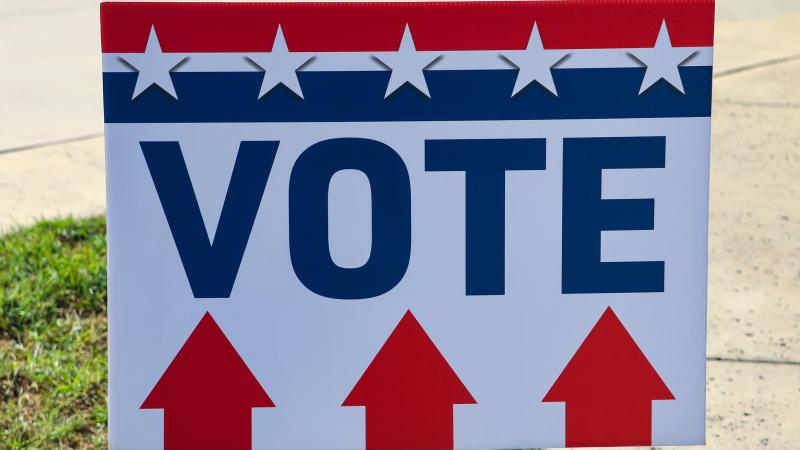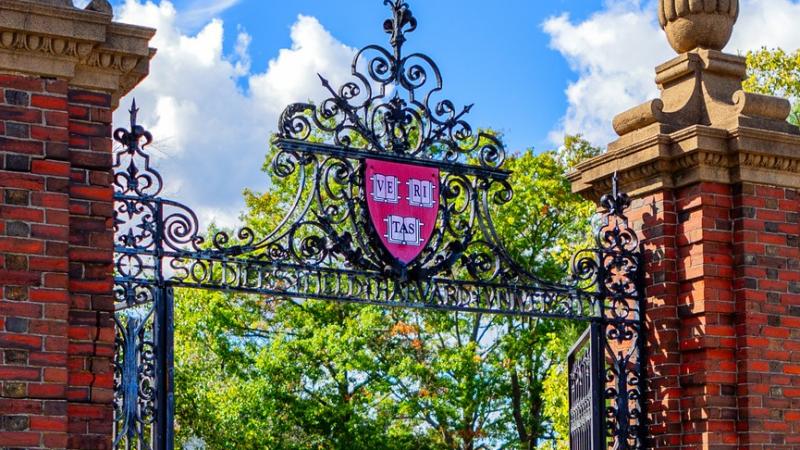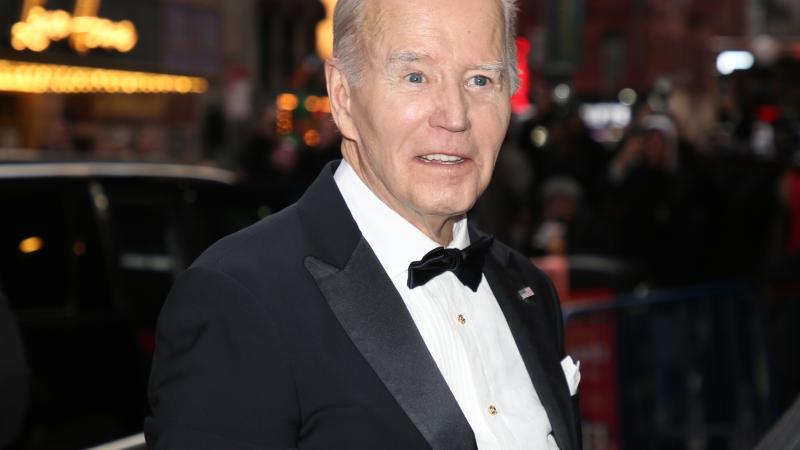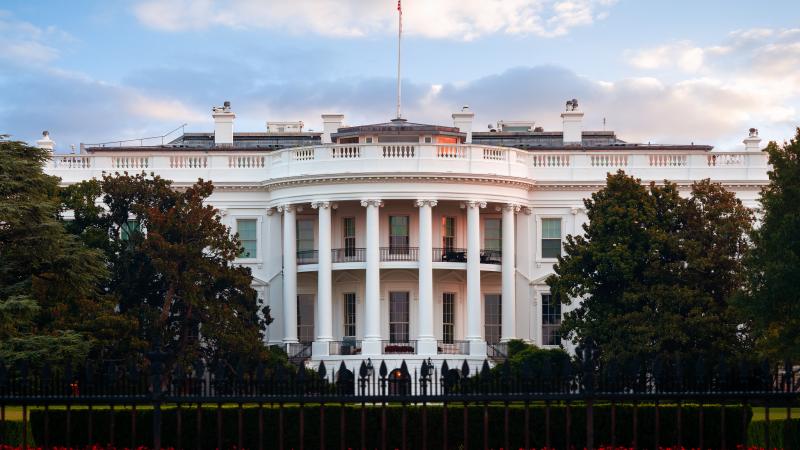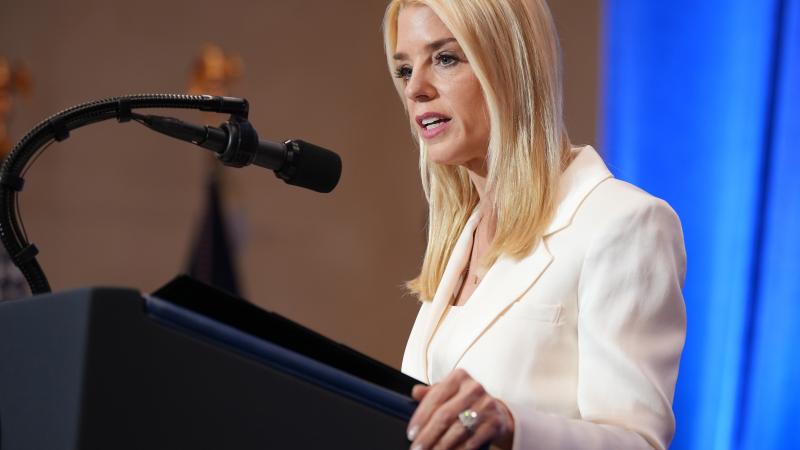Florida amendment to reverse abortion ban fails, likely preserving state's six-week ban
Florida was the first of 10 states where voters considered such an amendment to their state constitution in the wake of the Supreme Court's decision to overturn nationwide abortion access guaranteed by Roe v. Wade.
A constitutional amendment in Florida that would have overturned the state's six-week abortion ban was projected Tuesday night to fail after the measure was unable to secure the approval from the minimum 60% of voters.
The Associated Press reported at about 9:30 p.m. the measure had failed.
The rejection of the amendment follows GOP presidential nominee Donald Trump's 13-point victory in the increasingly conservative state. The state also appears poised to reject an amendment broadly legalizing marijuana.
Florida is among the 10 states in which voters this year are considering such an amendment to their state constitution in the wake of the Supreme Court's decision to overturn nationwide abortion access guaranteed by Roe v. Wade.
The failure of the amendment would be a victory for Florida GOP Gov. Ron DeSantis who campaigned aggressively against the proposal, labeling it extreme.
Other Amendments
Other abortion rights amendments are projected to succeed in Colorado and Maryland. Seven others remain to be called, according to the Associated Press.
Kentucky roundly rejected a school choice amendment that would have allowed the legislature to provide funding for students to attend private schools or to be used for homeschooling.
Background: Millions of Americans vote on election day ballot initiatives
Millions of Americans across the nation, from Florida to California, voted Tuesday on a range of ballot initiatives or constitutional amendments that could impact state policy trends for decades on a range of contentious issues, including abortion access and drug legalization.
Several initiatives have become the subject of the national conversation, especially those about abortion access as Kamala Harris courts female voters and Republicans try to defend strict abortion bans in states like Florida.
Abortion initiatives have soaked up the largest share of national attention as Democrats frequently cite access to the procedure as a key issue motivating their vote after a conservative Supreme Court overturned Roe v. Wade in 2022, returning to states the power to legislate on the issue.
Abortion
Republicans and pro-life activists who advocated for that decision were caught on the back foot when several state-level abortion initiatives passed with the electorate’s support in some traditionally red states—though others also failed to garner the requisite support. Other states quickly passed more restrictive abortion regulations, putting them in the crosshairs for ballot initiatives by pro-abortion groups.
One of the most sweeping initiatives secured enough signatures for the ballot in Florida. Amendment 4 would reverse the state’s six week abortion ban and could overrule state laws requiring parental consent.
The state’s governor and former GOP presidential candidate Ron DeSantis has barnstormed the state warning of the measure’s "deceptive language" and the unintended consequences of passing the amendment, like more late-term abortions and an undermining of parents’ rights.
“I think people should know the truth about what is at stake here,” DeSantis said at a rally in central Florida. “Amendment 4, for the way it’s deceptively crafted, would effectively mean no limits.”
In all, there are abortion access initiatives on the ballot in 10 states, including the swing states of Arizona and Nevada. Residents of Nebraska—which splits its electoral votes based the winner in each congressional district—will face dueling abortion initiatives, one to preserve abortion rights and the other that would outlaw it in almost all cases past the first trimester.
Democrats are banking that ballot measures on abortion access will motivate their base, and women in particular, to turn out for their party. Kamala Harris has made the issue a central component of her stump speeches and policy proposals. As president, she promises to veto any national abortion ban and sign a bill a bill to “restore reproductive freedom nationwide.”
Harris has also attacked Donald Trump for what she alleges are “very offensive” remarks about women and has alluded to past accusations of sexual assault or harassment against the former president.
“There’s a saying that you gotta listen to people when they tell you who you are or who they are. And this is not the first time he has told us he does not believe women should have the agency and authority to make decisions about their own bodies,” Harris said on the trail.
“We trust women,” she added.
Drug legalization
Several states across the country are also set to vote on drug legalization amendments. Florida, Nebraska, North Dakota and South Dakota will all vote on ballot measures that propose legalizing marijuana in those states.
This round of votes is the latest in a wave of states that have decriminalized the use of the drug since Oregon became the first state to do so in 1973 when it made possession of under one ounce of cannabis punishable by a fine only. Recreational marijuana is now legal in nearly half of U.S. states and Washington, D.C.
Voters in Massachusetts are set to face the question of whether to legalize psychedelic drugs for those 21 and up, a move opposed by psychiatrists in the state. If Massachusetts voters approve the measure, it will be the third state to legalize psychedelic use, following Colorado and Oregon which legalized its use in 2022 and 2021, respectively.
Votes on these measures come as some states have backtracked on liberal drug legalization, including Oregon—the original trailblazer. Earlier this year, Oregon’s governor signed a bill that would re-criminalize drug possession after a 2020 initiative that removed all criminal penalties. The liberal policy applied to drugs like heroin, cocaine and methamphetamine, which could be punished by a ticket and a fine.
Justice Reforms
California is set to vote on a ballot measure that would strengthen penalties for certain crimes, reversing several waves of criminal justice reforms that liberalized the code. A decade ago, voters approved a separate proposition designed to relieve overcrowded prisons by reclassifying some felonies as misdemeanors. Now, law enforcement, prosecutors, and retail stores are blaming the law for rising crime, homelessness and drug overdoses.
After a recent attempt in 2020 to reverse the reforms failed, the new ballot proposition has notched as high as 75% approval in some polls and is likely poised to pass.
Progressive prosecutors in Los Angeles and Oakland are also facing the backlash against softer crime policies. Part of a cadre of prosecutors nationwide that have championed reforms to weaken punishments in favor of alternative methods, LA District Attorney George Gascon and Oakland DA Pamela Price are facing recall elections. According to recent polling, Gascon is trailing his conservative opponent by 24 points in the liberal-leaning city. Gascon has, according to the Law Enforcement Legal Defense Fund, been the recipient of more than $6 million from ultra-leftist billionaire George Soros.
School choice
Three states are set to vote on school choice ballot initiatives which could expand government funding for private education or homeschooling. Two ballot measures would bring school choice to Kentucky and Colorado for the first time, which do not currently have any programs.
Nebraska voters are set to decide the fate of an amendment that would repeal the $10 million-a-year school choice program in the state which currently covers costs for students to attend private schools.
The Facts Inside Our Reporter's Notebook
Links
- The Associated Press reported
- poised to reject
- projected to succeed
- roundly rejected
- Democrats frequently cite access to the procedure as a key issue
- Amendment 4
- barnstormed the state
- she promises
- âvery offensiveâ
- said on the trail
- the first state to do so in 1973
- nearly half of U.S. states
- re-criminalize drug possession
- approved a separate proposition
- are blaming the law
- facing the backlash
- trailing his conservative opponent
- more than $6 million
- Kentucky
- Colorado
- decide the fate of an amendment



